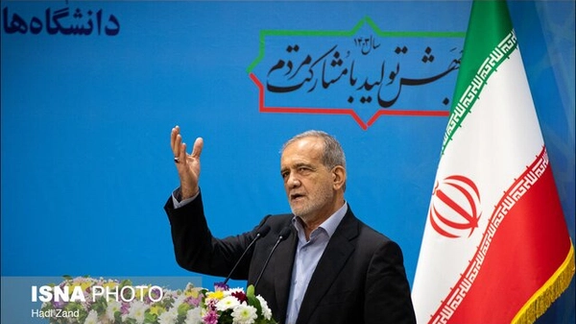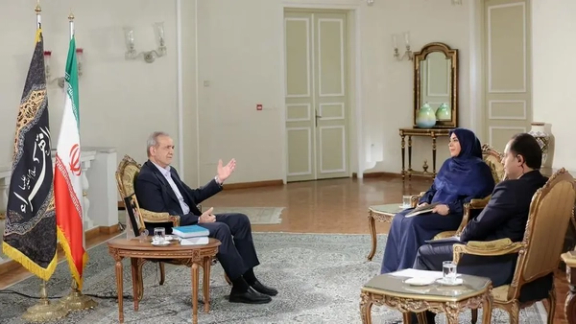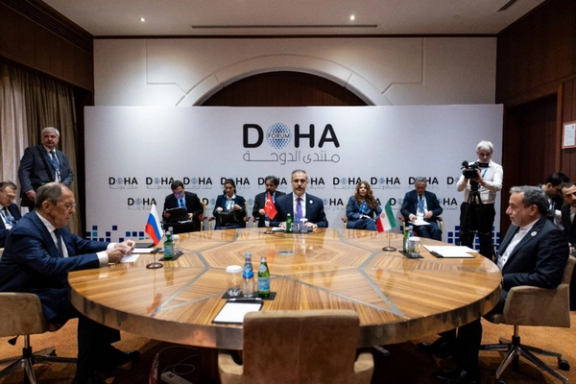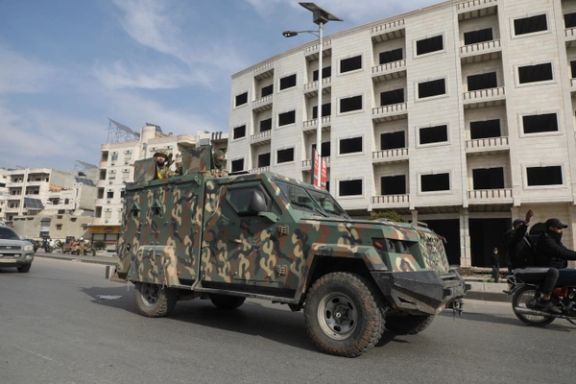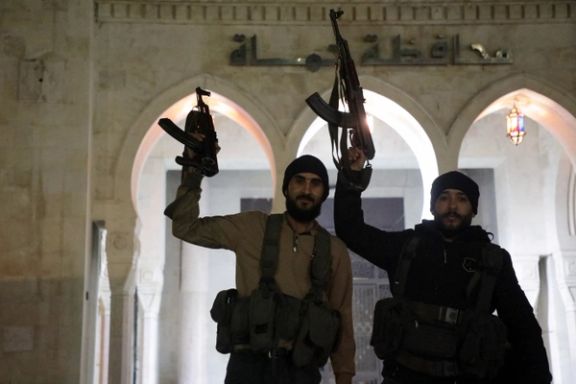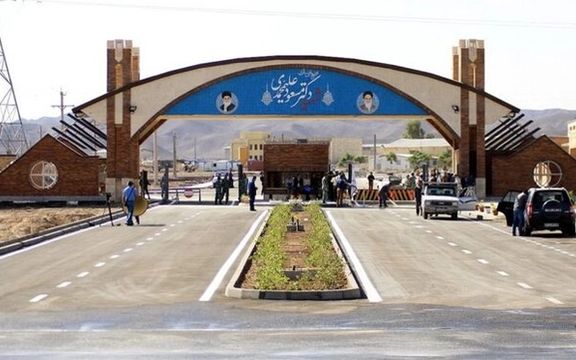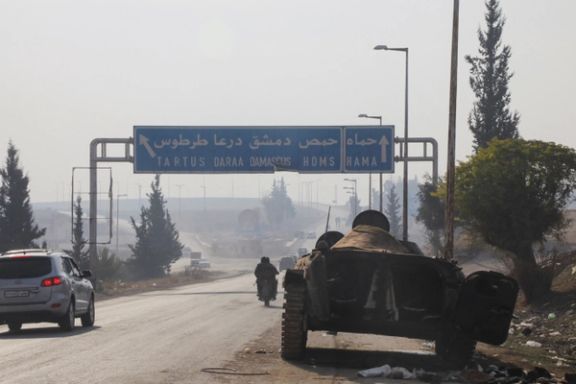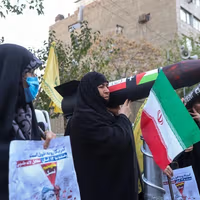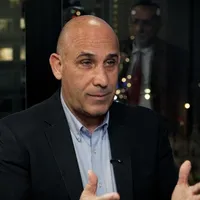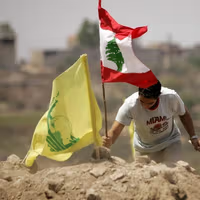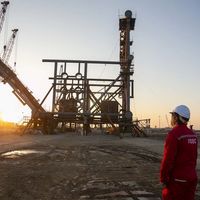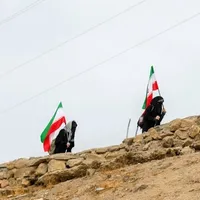Hardline Islamist-led opposition forces are just as much a threat to Iran as they are to Assad, a Syrian analyst told the Eye for Iran podcast.
“Iran's real borders, from the Iranian regime's perspective, are not in Iran. Iran's borders are in Syria,” said Qutaiba Idlbi, a senior fellow with the Washington DC-based Atlantic Council covering Syria.
Tehran has extended its influence to the Mediterranean through its Lebanese ally Hezbollah, using Syria, which has been under Assad family rule for decades, as a key conduit.
“Iran uses Syria as a land bridge to other places. As we've seen since 2019 there has been an extensive Iranian effort through the Islamic Revolutionary Guard Corps (IRGC) to try to get to Jordan through Syria using illicit networks. They've been trying to smuggle weapons and build networks within Jordan to try to have more influence over the country,” said Idlbi.
But that land bridge is currently not operational in part due to heavy Israeli airstrikes targeting Iranian interests in Syria. Iran’s alleged smuggling routes supplying Hezbollah and alleged IRGC weapons facilities have been the target of Israel for more than a year.
Because of its geographic strategic importance, Iran invested heavily in Syria over the years spending tens of billions of dollars, securing investment projects like allowing Iran to control phosphate mines and take over 5- thousand hectares of farmland and 1-thousand of oil and gas, according to Reuters.
Under the late President Ebrahim Raisi, Tehran and Damascus signed a “strategic cooperation memorandum of understanding."
Syria is of vital importance to Iran and its quest for regional hegemony, but there have been more recent blows to the Iran-backed axis losing access to key border crossings.
US-backed Syrian Democratic Forces (SDF), an alliance of Syrian Kurdish fighters, seized the eastern city of Deir ez-Zor and a nearby Iraqi-Syrian border crossing used by Iran to arm Lebanon's Hezbollah, Reuters reported on Friday.
Ultimately this undermines Iran's ability to rescue Assad.
As Iran's position weakens, Assad may become even less willing to abandon his closest ally, despite alleged pressure from the United States and Israel.
The reason, according to Idlbi, is that Iran may represent Assad's only viable chance for survival—and vice versa. Idlbi added that while Assad might tell world leaders he is willing to distance himself from Iran, he is unlikely to follow through, given his reputation for dishonesty.
"He [Assad] does have the reputation of being a big liar, basically, where no one can really trust a word that comes out or any promise or commitment that he makes for sure."
So far, there is no sign that Iran is planning to militarily intervene to save Assad. Local sources are reporting that some Iranian forces are withdrawing into Iraq from eastern Syria.
On the world stage Iran is full of bluster, Idlbi argued.
While the Iranian establishment is publicly supporting Assad, there is only so much aid Iran may be able to provide as city after city falls to the insurgents' lightning advance.
Convincing Iranians to fight in the war in Syria may be another challenge, said Idlbi.
Idlbi, who fled Syria after being imprisoned twice and faced torture for his political activities, said Iran would not be able to find an airport to land their plane.
Iran and its regional militia fighters, chief among them Hezbollah and Hamas, are all degraded after more than a year of war with Israel.
Other than sending Iran-backed Iraqi Shi'ite militias to Syria in addition to recruiting forces from Afghanistan, Iran's military might is limited but their determination is unbowed, according to Idlbi.
“I don't think Iran will stop looking for a solution. I think they're actively trying to break some of those boundaries to be able to provide the support to Assad.”
“Without Syria, the regime [Iran] would really lose a lot of its intelligence and military capabilities and leverage over countries in the region.”
And just how far Iran could go to salvage its stronghold on Syria largely depends on Russia’s next move.
It appears Russia isn’t going to save Assad like it did in 2015 by shoring up its rule with airstrikes and troop deployments. The Kremlin told all Russian citizens to flee Syria Friday as rebel forces continue to make advances in the north.
Idlbi said Russia doesn’t appear willing or even capable of saving Assad this time as Putin is preoccupied in Ukraine.
“It seems some in Russia, specifically in the Kremlin, are thinking maybe enough is enough. Maybe we've invested a lot in Assad. We have an important base in Syria's coast, in Latakia and Tartus.”
The lack of action on Russia’s part harms Iran, despite the hundreds of drones Tehran has sent to Russia to aid its full-scaled invasion of Iran.
You can watch the full episode of Eye for Iran featuring the Atlantic Council's Qutaiba Idlbi, on YouTube or listen on Spotify, Apple, Amazon, Castbox or any other major podcast platform.
